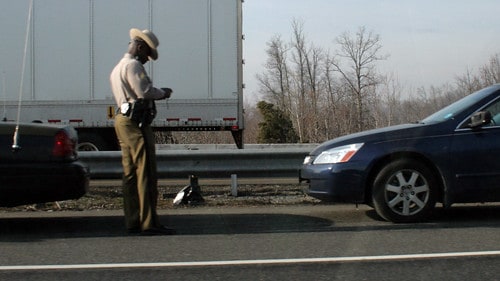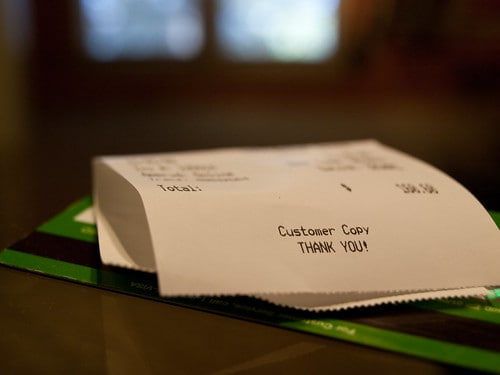Traffic violations and your auto insurance

Even if you live in a state without these hefty additional penalties, the cost of a traffic violation doesn't end with the cost of the ticket. If you want to keep the infraction off your driving record, there's the added cost of a traffic school fee and the cost of the traffic school course. If you choose to pay the ticket and not attend driver's ed, your ticket might get even more expensive — you'll incur the long-term costs of higher auto insurance.
Violations can Raise Premiums by 50 Percent
According to an Insurance.com analysis of more than 32,000 insurance policies, drivers who purchased a one-car, single-driver policy in 2010 and had one violation on their record paid about 18% more on average than drivers without any violation. Drivers with two paid 34% more for their policy, while drivers with three violations paid a staggering 53% more for auto insurance than those with zero violations. Continue reading...
How to dispute your mechanic bill

This article is by freelance writer Roger White and staff writer April Dykman. It originally appeared on Roger's blog in a different format.
April
As many GRS readers know, last year I quit my job to become a full-time freelancer. The hardest thing about moving on was leaving coworkers like Roger White, a magazine editor and author of the funniest interoffice e-mails ever. Roger and I teamed up to bring you his story about a recent experience paying for an auto repair, along with tactical advice about how to dispute your mechanic bill.
Roger
Our little family was tooling along this year, struggling to stay within our monthly budget while juggling life's big-ticket items—you know: braces, countless teenage daughter items, summer camp fees times number of children squared, etc., etc.—when the two most feared words in all of suburbia's lexicon knocked us flat.
Buying a home? Pay attention to property inspection
A house is the most expensive thing most of us ever will purchase. If you plan to stay put for some time, you could be paying on your mortgage for the next 15 to 20 years. But as any homeowner knows, expenses don't stop at the purchase price and mortgage interest. You'll also pay a small fortune in insurance, upkeep, and repairs over the years.
This is what makes it so important to fully understand the process of buying a home, especially when it comes to property inspection. With so many features and systems, there are any number of things that can break or malfunction in your house. Unlike a faulty appliance that you can take back to the store for replacement or refund, once you sign a contract on a home, there's little recourse should something go wrong.
According to the National Association of Realtors, April through July typically outpace the balance of the year in home sales as people try to get settled before the new school year begins. If you plan to purchase a home soon, make sure you pay careful attention to the property inspection process to save both money and headaches.
The dangers of store credit cards (and how I got suckered into opening a store credit card)

When I was a freshman in college, I did two very bad things (ahem — two bad things related to personal finance).
Bad Thing #1
First, I opened a VISA credit card. There was a guy at a booth on campus, and being too naive and timid to tell him to buzz off, I stopped and listened to his pitch. Next thing I knew I was filling out an application. 
Luckily, I was about to start a part-time job, so I was comforted in knowing I could handle this predicament myself. I paid down the balance — but then charged it up again. This cycle went on for years. I always paid more than the minimum, but never fully paid off the debt.
To Automate, or Not to Automate
Lately I've been giving my personal finance systems a lot of thought. What is the best way to track my expenses (I've yet to figure it out)? Am I allocating my savings in the way that makes the most sense? Should I automate more, or less?
Right now I'm both automated and unautomated. Payments for cell phones, my yoga studio membership, Netflix, and charity, for example, are automated, as are my transfers to savings and savings subaccounts. The payments for bills like individual health insurance, gas service, and car insurance require paper checks for various reasons.
Automating sounded smart, but lately, I've been wondering if automation isn't making me lazy, which might be costing me money.
How to Spend Your Way to Happiness

You know the old adage “money can't buy happiness”? Researchers Elizabeth Dunn, Dan Gilbert, and Timothy Wilson say it's a myth. Drawing on empirical research, they've identified key ways that people can get more bliss for their buck.
The link between money and happiness has been studied for decades, and the result is always the same: Money does buy happiness — but less than most of us think. After a certain point — having basic needs met and a little "play money" in your pocket — having more money doesn't create more happiness. But Dunn, Gilbert, and Wilson wanted to know why.
Th
Establish your financial priorities (worksheet inside!)
Quick — can you list your top financial priorities?
My top priorities (aside from basic living expenses) are building a house and travel. Those are the two things I daydream about the most, and the two things I try to keep in mind when I'm deciding whether I really need all 10 "hard-to-find" books from the used book store or whether I'm overspending on, say, a $100-compost bin, when there's a cheaper alternative (<---My husband and I built one of those this weekend!).
When we were paying off debt, however, we had a different set of priorities. After the bare necessities, there was paying off the credit cards, then paying off the car, and finally a fully-funded emergency fund. (As I've mentioned before, we didn't start with the mini-emergency fund, which is the best way to go — we were still learning about money and fumbling our way through debt repayment.)
Save on Gas with Auto Maintenance
I'm awful at maintaining my vehicles. Spectacularly bad. I have always relied on someone else to take care of oil changes, check tire pressure, and whatever else cars need to have done on a regular basis. When it rains, I congratulate myself for having washed the car.
I'm not into cars, obviously — never have been. Vehicles simply get me from point A to point B.
Back to the stone age: Low-tech expense tracking
As many of you know, before I was a GRS staff writer, I was a GRS reader and active commenter. I'd say the bulk of my early personal finance education came from this website, and it's most definitely the resource I credit for spurring me to get serious about paying off debt and saving money.
So last year when J.D. started talking about falling off the tracking-every-penny wagon, I winced. I haven't been tracking my spending, either. Ever since our income went up last year, I've been satisfied that we're saving enough — more than 55% of our income. We have no debt, we have targeted accounts for irregular expenses, and we pay our credit card bill in full every month. We're definitely doing well, but the more J.D. wrote about getting Tracking for peace of mind
Like J.D., I don't like the "financial black box” of not knowing where our money is going. Did we spend more on groceries than usual this month? Approximately how much are we spending on gas? I have no idea!
10 lessons from song lyrics about money
When you're looking for personal finance advice, you probably check out books and websites like GRS, but what about turning on the radio?
Recently, I wrote about the cost of love and mentioned several songs with lyrics about love and money. This got me thinking about how many songs have lyrics about money in general and what lessons we can learn from them.
Yeah, I know, I know. It's a light-weight topic. So sue me. Not every post can be about funding your Roth IRA or finding a high-yield savings account!



